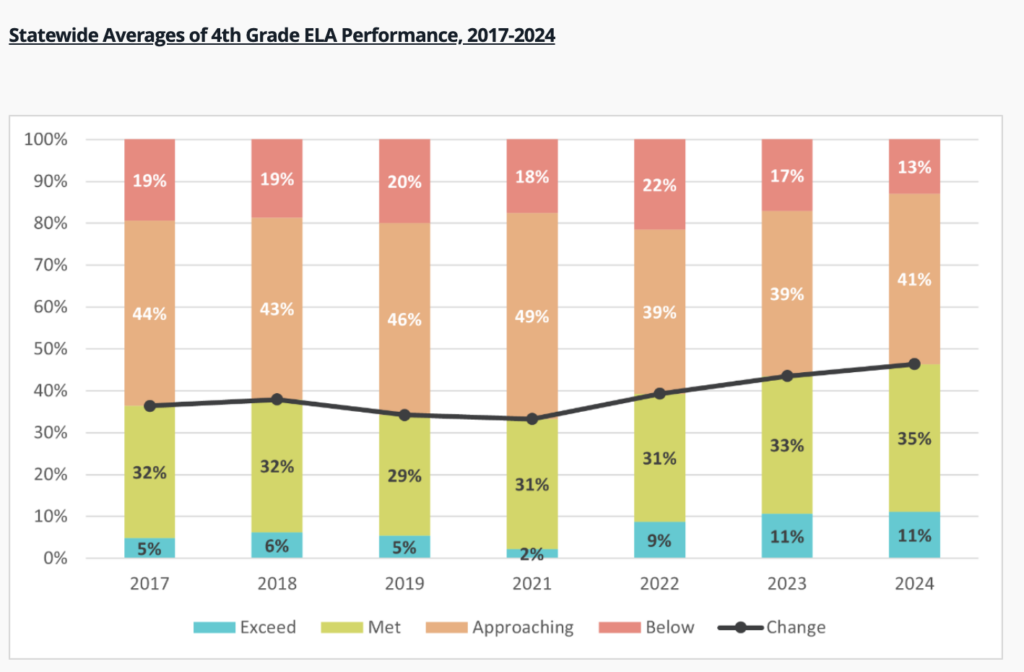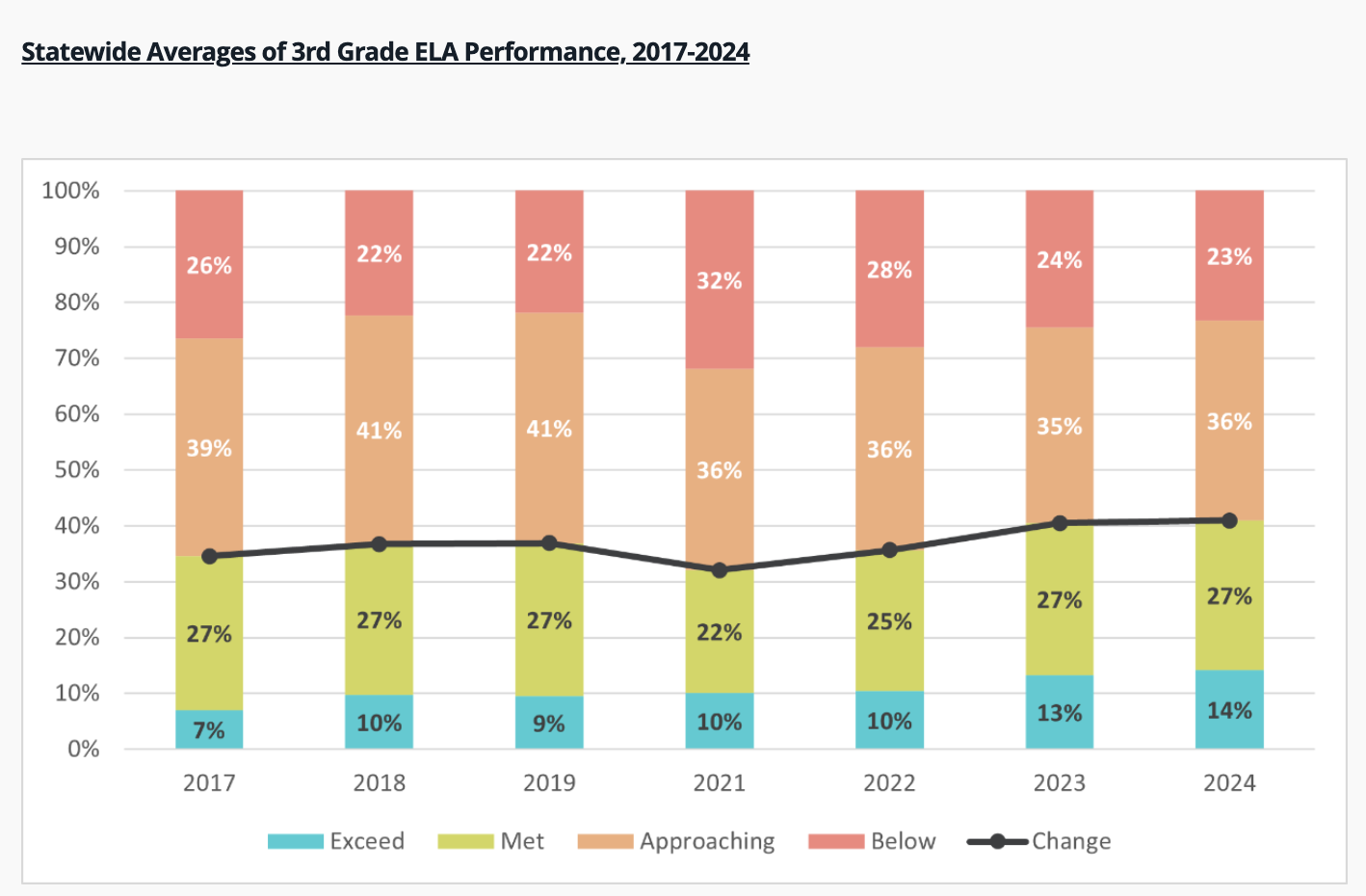
Third and fourth graders just logged their highest English Language Arts proficiency rates since the state test was revised in 2017. Still, more than half of students in both grade levels fell short of state standards.
The Tennessee Department of Education released statewide data on the English Language Arts section of TCAP on Thursday. A student’s proficiency determines whether they automatically move on to the next grade. Based on the state’s retention law, many students will need learning interventions, appeals or parent meetings to get promoted.
The wins
This year, 46% of fourth graders scored proficient or higher on the ELA section of TCAP. That’s a nearly 3 percentage point improvement over last year’s fourth graders. This same cohort of students made historic gains in 2023 as third graders. And fewer students than ever before fell into the test’s lowest category, just 13%.
 Courtesy Tennessee Department of Education
Courtesy Tennessee Department of Education This year’s cohort of fourth graders have made significant strides in ELA for two straight years.
This year’s third graders also made slight gains. They inched up the proficiency rate to 41%.
 Courtesy Tennessee Department of Education
Courtesy Tennessee Department of Education Third graders kept up with last year’s historic gains and even improved on them a bit.
Plenty of room to grow
Despite these improvements, many third graders will need to get tutoring, attend summer learning camps, or make an appeal to the state to move on to fourth grade.
And the TCAP is relevant for many fourth graders too. Students who got promoted through mandatory tutoring must demonstrate “adequate growth” to move on to fifth grade. Otherwise, a parent, English teacher and principal must decide whether the student repeats fourth grade or moves on to fifth with an additional school year of tutoring. That created a time crunch for some principals this year.
“As we continue our work to ensure that all Tennessee students can read at grade level, we remain committed to supporting teachers and empowering families with multiple pathways to achievement so every student can thrive in their academic journey,” Gov. Bill Lee said in a press release announcing the data.
TDOE credits the improvements to a variety of factors, including the hard work of families, teachers and school districts. The department also points to literacy initiatives, like a statewide shift to phonics-based reading instruction, and the tutoring and camps outlined in the state’s retention law.

